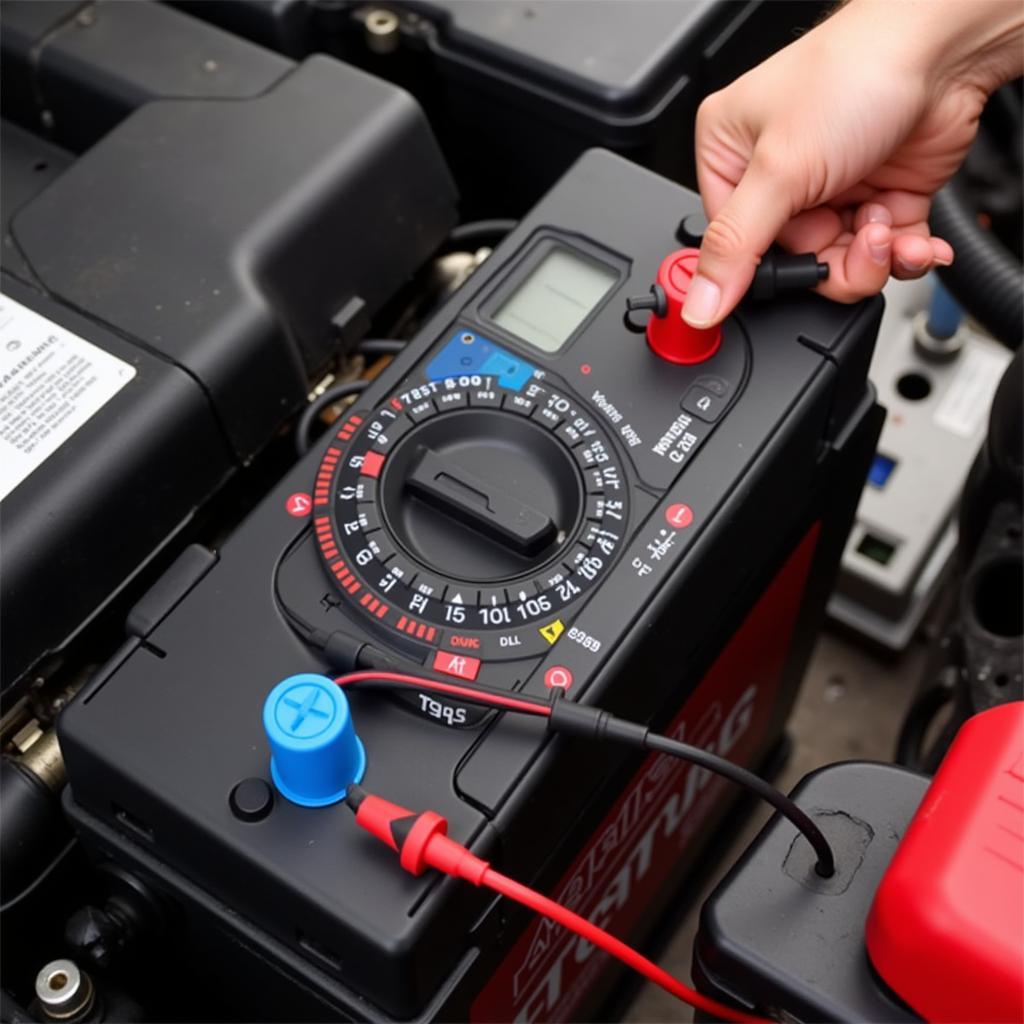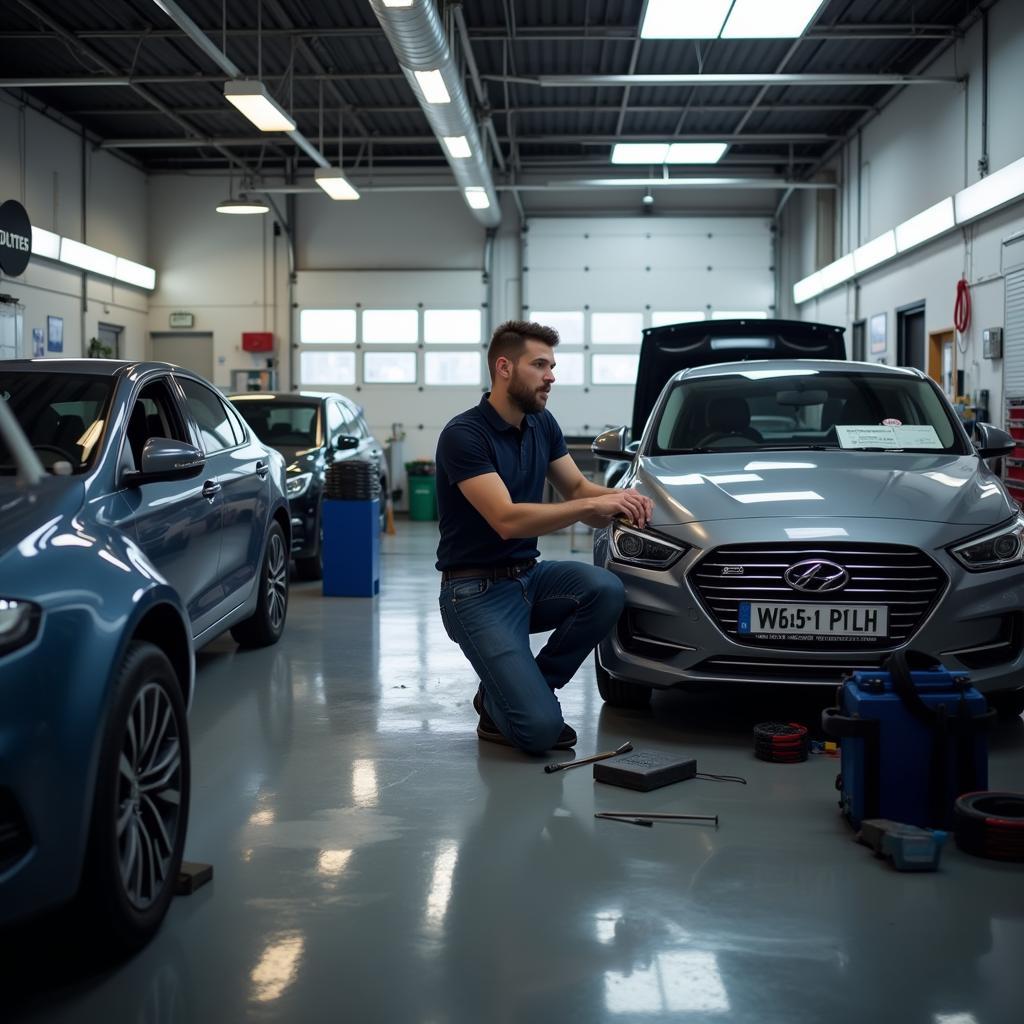Cranking Problems Cars can be a frustrating experience, leaving you stranded and unsure of the cause. This guide will delve into the common causes of cranking problems, offering troubleshooting tips and solutions to get your car back on the road. We’ll explore everything from simple fixes to more complex electrical issues, empowering you to diagnose and potentially resolve the problem yourself.
Understanding the Basics of Cranking Problems
Before diving into specific issues, it’s crucial to understand the basic components involved in the starting process. This includes the battery, starter motor, solenoid, and ignition switch. A problem with any of these can lead to cranking problems. For example, a weak battery might struggle to provide enough power to turn the starter motor, while a faulty solenoid might not engage the starter at all.
Have you ever tried turning the key and heard nothing but a click? This could indicate a solenoid issue, and you might find helpful information in our article on solenoid problems in cars.
Common Causes of Cranking Problems Cars
Several issues can cause cranking problems. Here are some of the most common culprits:
- Dead Battery: This is often the most obvious cause. A dead battery can result from leaving lights on, extreme temperatures, or simply age.
- Corroded Battery Terminals: Corrosion on the battery terminals can disrupt the flow of electricity.
- Faulty Starter Motor: A worn-out or malfunctioning starter motor can struggle to crank the engine.
- Bad Ignition Switch: A faulty ignition switch might not send the signal to activate the starter.
- Wiring Problems: Damaged or loose wiring can interrupt the electrical circuit.
Sometimes, cranking problems are model-specific. For instance, you can check out our article on 2001 town car problems if you own a 2001 Town Car.
Troubleshooting Cranking Problems Cars
If your car is experiencing cranking problems, here’s a step-by-step guide to help you troubleshoot:
- Check the Battery: Start by checking the battery voltage with a multimeter. A fully charged battery should read around 12.6 volts.
- Inspect the Battery Terminals: Look for corrosion on the battery terminals. Clean them with a wire brush and baking soda solution if necessary.
- Test the Starter Motor: You can test the starter motor by tapping it gently with a hammer while someone tries to start the car. If the car starts intermittently, the starter motor is likely faulty.
- Check the Ignition Switch: Try turning the key to the “on” position and checking if the dashboard lights illuminate. If not, the ignition switch could be the problem.
It’s important to note that some cars are more prone to electrical issues. Our article on cars with the most electrical problems can provide valuable insights.
 Testing a Car Battery with a Multimeter
Testing a Car Battery with a Multimeter
When to Seek Professional Help
While some cranking problems can be solved with simple DIY fixes, others require professional expertise. If you’ve tried the basic troubleshooting steps and are still unable to start your car, it’s best to consult a qualified mechanic. This is especially important if you suspect complex electrical issues. Ignoring the problem can lead to further damage and more costly repairs down the road.
“Ignoring cranking issues can quickly escalate into a much bigger problem, potentially stranding you in a less-than-ideal situation,” warns John Smith, a seasoned automotive electrician with over 20 years of experience.
Cold Weather Cranking Problems
Cold weather can exacerbate existing cranking problems or create new ones. Thickened engine oil and a weakened battery are common culprits in cold weather starting issues. You might find our article on car has problems starting in cold weather helpful if you experience this.
“In colder climates, it’s crucial to ensure your battery is in top condition and your engine oil is appropriate for the temperature,” advises Sarah Jones, a certified mechanic specializing in cold weather car maintenance.
Conclusion
Cranking problems cars can range from simple battery issues to complex electrical faults. By understanding the common causes and following the troubleshooting steps outlined in this guide, you can often pinpoint the source of the problem. However, don’t hesitate to seek professional help if you’re unsure or the issue persists. Addressing cranking problems promptly can prevent further damage and ensure your car remains reliable. For personalized assistance, contact AutoTipPro at +1 (641) 206-8880 or visit our office at 500 N St Mary’s St, San Antonio, TX 78205, United States. We’re here to help you get back on the road! You can also read more about general electrical system of a car problems on our website.





Leave a Reply